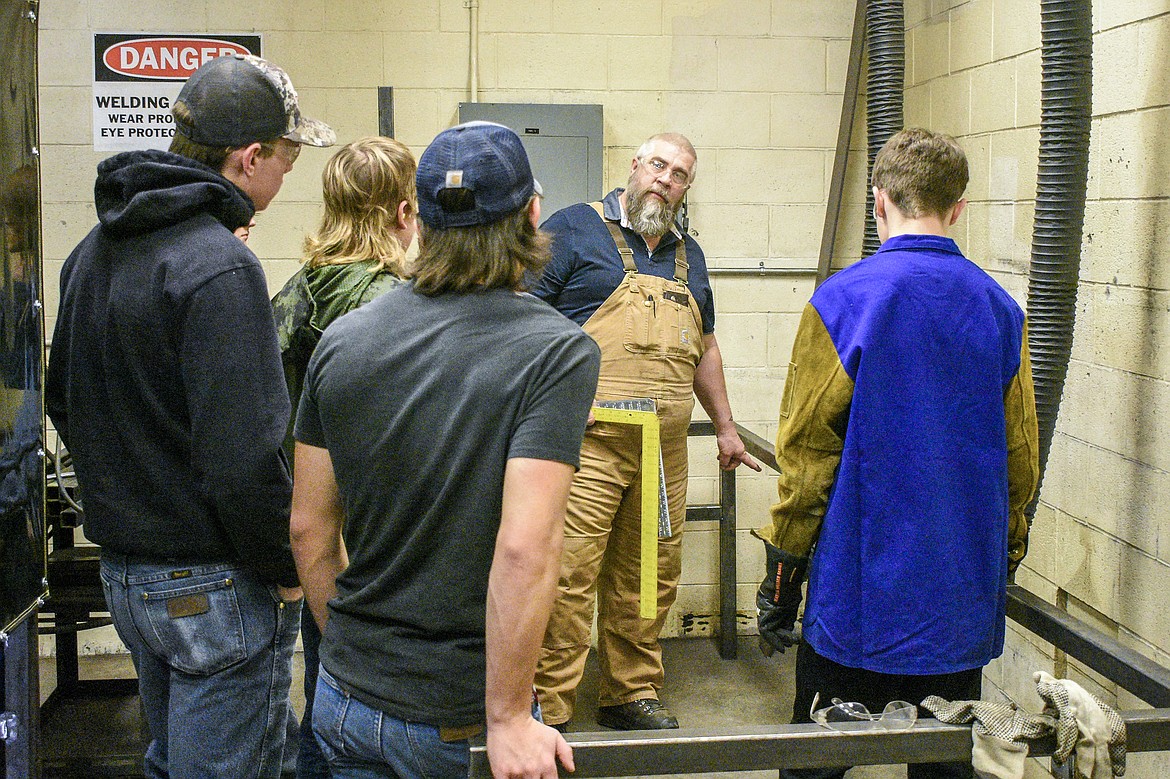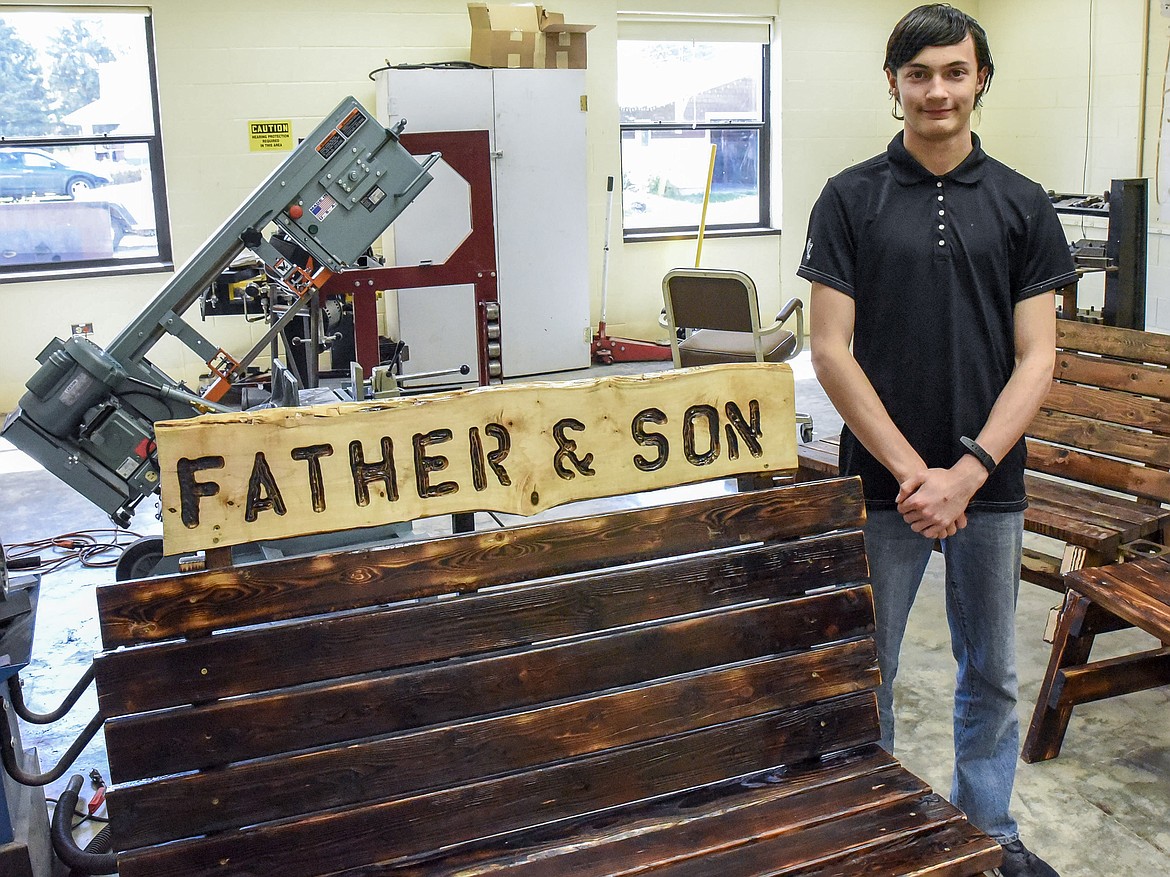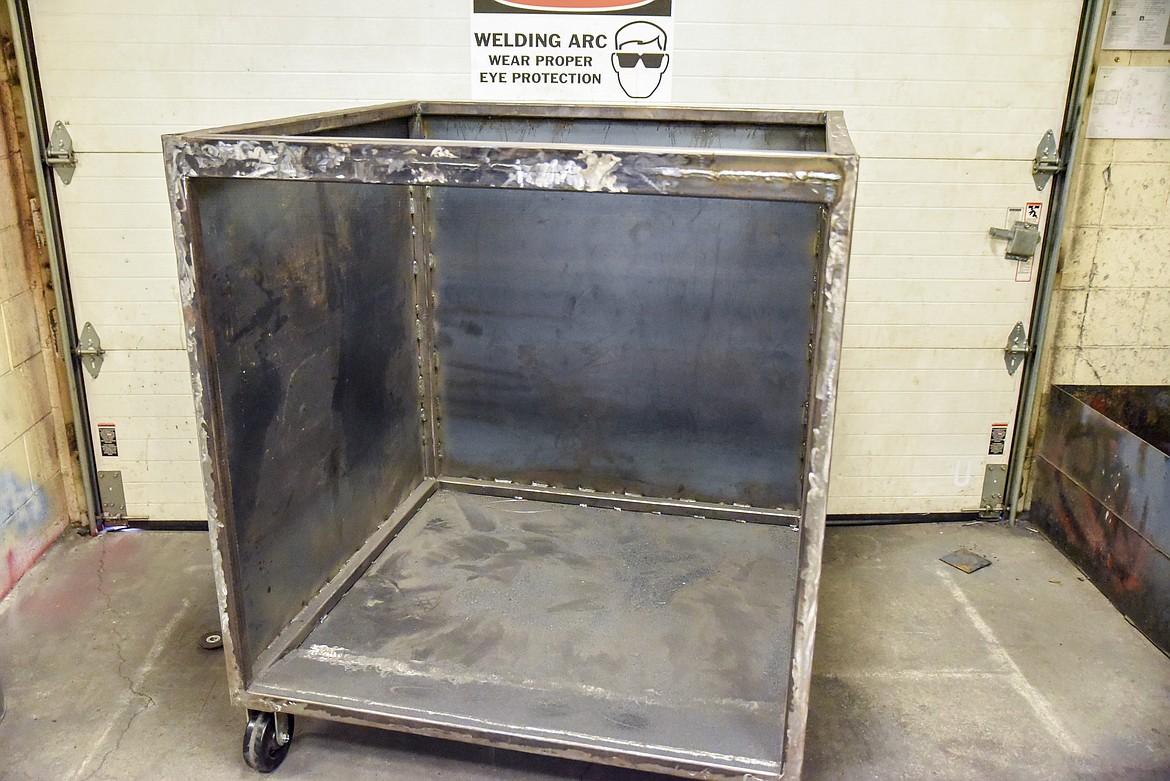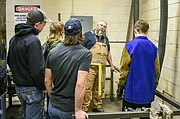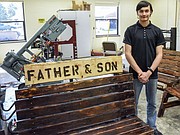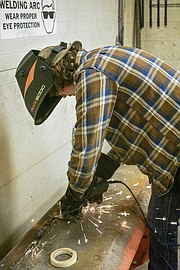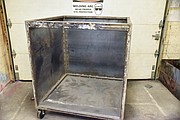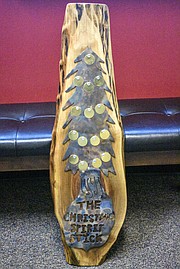Troy industrial arts is not your father's shop class
At the Troy Middle-High School, the industrial arts program is teaching students skills that go beyond knowing how to follow instructions and complete basic tasks.
One project the students are currently completing is the creation of small dumpsters that can be attached to the front of the school’s tractor, allowing workers to easily pick up and move trash from places such as the Troy Activity Center.
But industrial arts teacher Jeff Thill didn’t just have the students build a design he created.
Principal Christina Schertel said that when she visited Thill’s classroom, the students were excited to show her the models they created before starting work on the project.
Thill said he had the students involved in the design and calculations from the start.
That meant finding the right ratio of strength to weight, he said. If the dumpsters were too heavy, the tractor wouldn’t be able to lift them when they were loaded. Yet, they also had to be strong enough to hold the weight of the trash.
So the students calculated things such as the right thickness of the metal sheeting and tubing before they even began on constructing and welding the dumpsters.
Having the students work with real-world scenarios that aren’t pre-packaged for them is very important, said Thill — who worked for years as a private contractor before coming to teach at the school.
“It allows them to understand the whole start to finish of it,” Thill said.
Troy senior Creedence Martin said that a notebook was not something she expected she would be using in shop class.
“I didn’t even have a notebook,” she said.
But there is plenty of classroom time, whether it’s making calculations and working on the engineering side of things, or reviewing safety standards the students will need in the real world.
“He knows what the kids are going to need in the workplace, so he’s really big on safety,” Schertel said. When she goes to observe the classroom, the students bring her safety equipment to put on without prompting from Thill.
Thill teaches the students the habits of an actual work environment, she said.
“I think it’s very important, just to apply it in a real life situation,” Thill said.
His future plans for the class include developing a project that would integrate all parts of what he teaches — from metal and woodworking to automotive and welding.
Freshman Dominic Bell, who recently completed a bench in the class that he made with his father in mind, said that there is definite satisfaction in stepping back and looking at something he made with his own hands, and that he will be able to use.
Bell’s classmate, freshman Tristen McLaughlin, is taking it a step further, working on benches to sell in his free time.
Sophomore Collin Stecher, who in January worked on a welding repair of the bucket for the school tractor, said working on something with a real world application makes the classes more engaging than just doing practice welds.
“You feel like you’ve accomplished something more,” he said.
Other students, such as senior Sarah Shadden, come into the class as a requirement, and may not expect to get much out of it at first.
Shadden said that she is more interested in art, and Thill showed her how she could use flames to color metal, which got her interested in doing more.
Thill said that he looks for ways to tie into what the students already know or are interested in.
Shadden said that Thill has a very open teaching style, and is easy to talk to. “Once you get to know him, he’s really, really cool.”
“He’s really hands on, and he always has ideas,” Martin said. “Just, he’s a really good teacher and a really great guy. So, he can make basically anything fun.”
Thill doesn’t treat his male and female students differently, Schertel said. He sets expectations based on what he finds out about the student, not any preconceptions.
Building positive relationships with students is essential to education, Schertel said.
“If you don’t care about kids, why would they care about what you’re teaching? Relationships always have to come first,” she said.
And Thill “practices what he preaches” when it comes to learning and exploring new skills, Schertel said.
“He also is constantly wanting to learn, and grow and try new things,” she said.
“He’s constantly looking for ways he can improve his teaching too,” she said. Thill is always adding new ideas, working hard, finding ways to improve himself and working toward harder goals.
“And I think that’s why the kids have so much respect for him,” she said.


